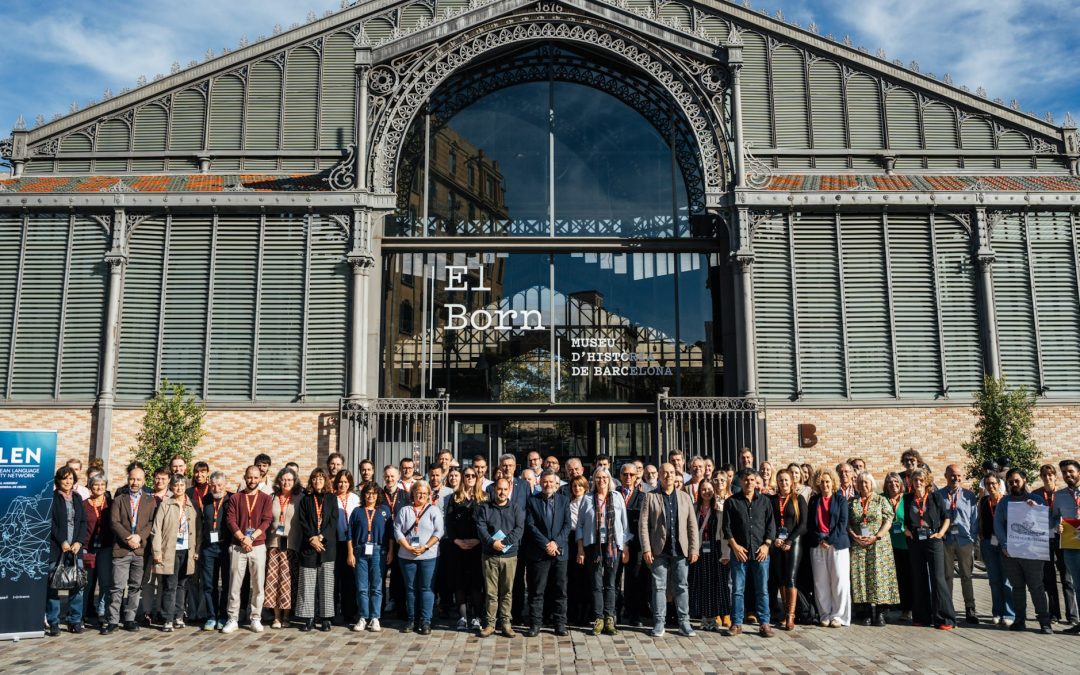Around 100 delegates representing 182 language activist organisations gathered in Barcelona over the weekend for the 2025 ELEN General Assembly hosted by CIEMEN and supported by the Catalan Government and Barcelona Council. The meeting covered a wide range of issues affecting European minoritized languages focusing particularly on the digital divide, the need for adequate language technology, and ELEN’s new proposals to the EU for substantive minoritized language protection measures.
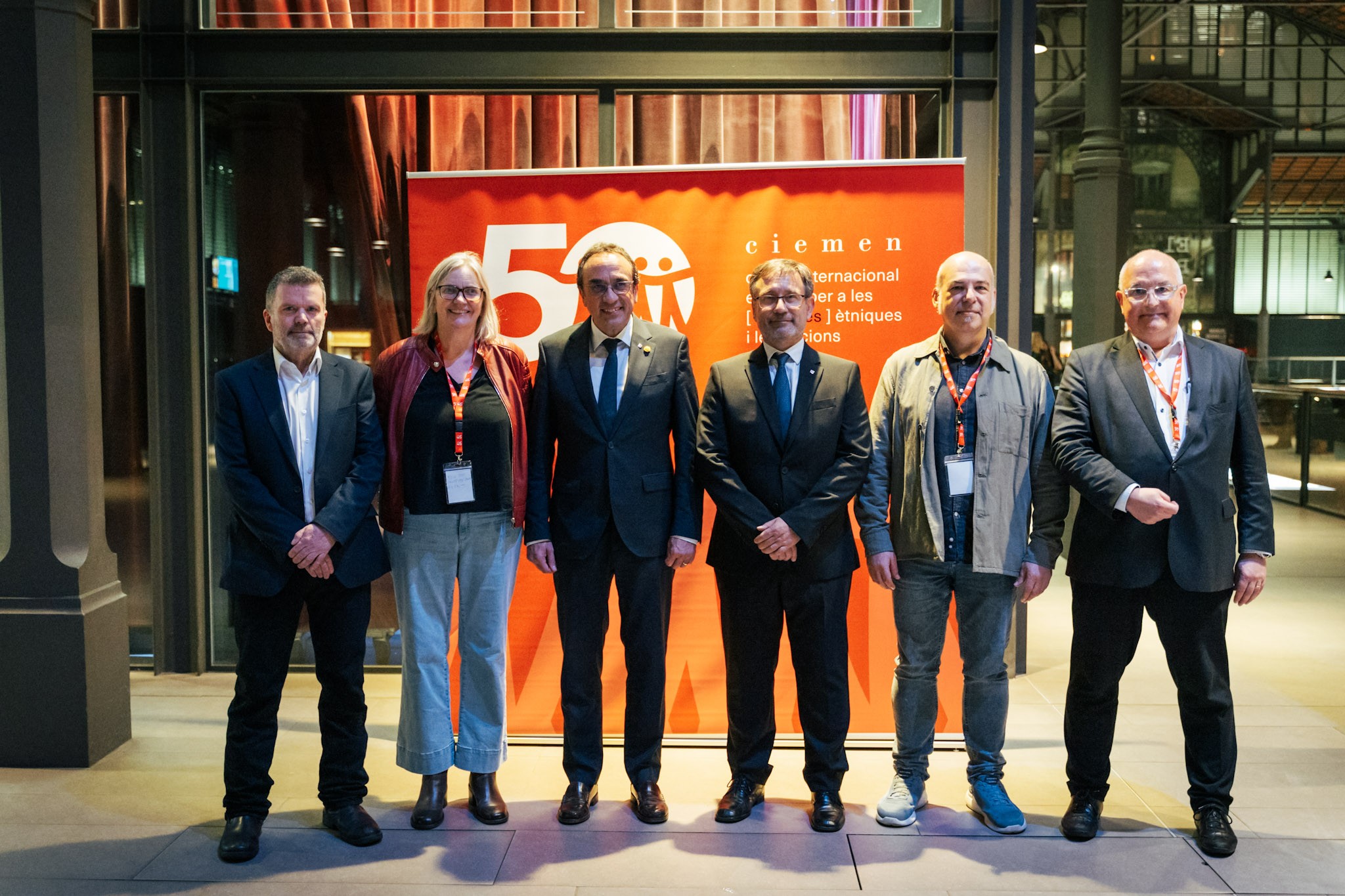
The official reception of the assembly, which took place on Friday afternoon at the El Born Cultural Centre, included speeches by ELEN Secretary-General Davyth Hicks; CIEMEN President David Minoves; ELEN President Elin Haf Gruffydd Jones; UN Special Rapporteur on Minority Issues, Nicolas Levrat; Commissioner for the Social Use of Catalan at Barcelona City Council, Marta Salicrú; Minister for Language Policy of the Generalitat de Catalunya, Francesc Xavier Vila, and President of the Parliament of Catalonia, Josep Rull.
A new advocacy strategy for the EU.
At the top of the meeting’s Saturday morning agenda was the need to get the EU to live up to its obligations to protect European minoritised and endangered languages. ELEN presented a new strategy to delegates drafted with input from the UN Special Rapporteur for Minorities which received strong support from ELEN members. The strategy calls for substantive binding measures from the EU under the EU’s obligations to protect linguistic minorities as stipulated in Article 2 of the Lisbon Treaty.
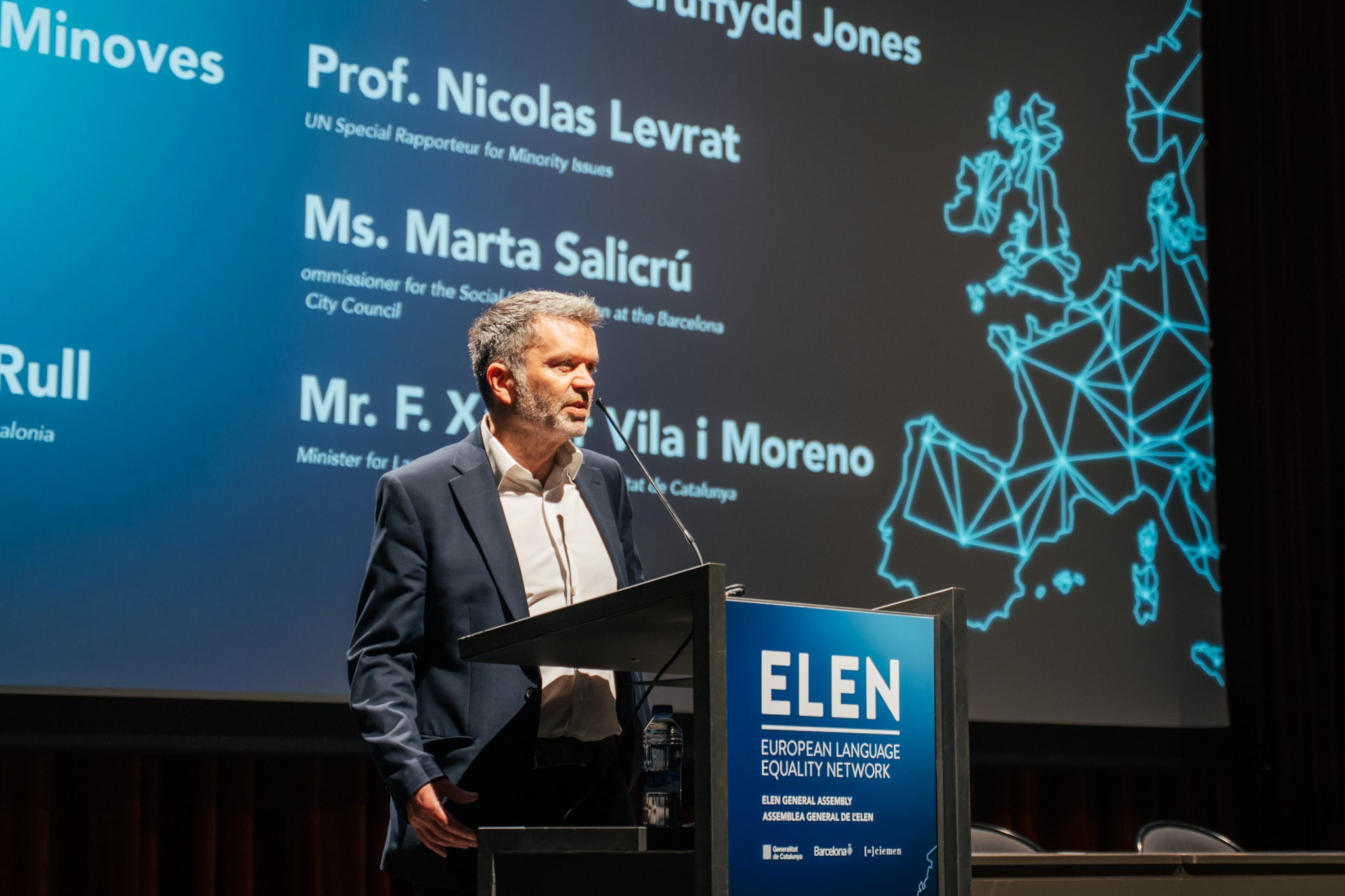
Speaking to delegates ELEN Secretary-general Davyth Hicks said that, “Now more than ever, the EU must act to protect Europe’s minoritized languages, as required under Article 2 of the Lisbon Treaty.” He added, “Public opinion is clear – by the EU’s own polling 84% of Europeans support proper protection for our languages. The EU can no longer ignore this.”
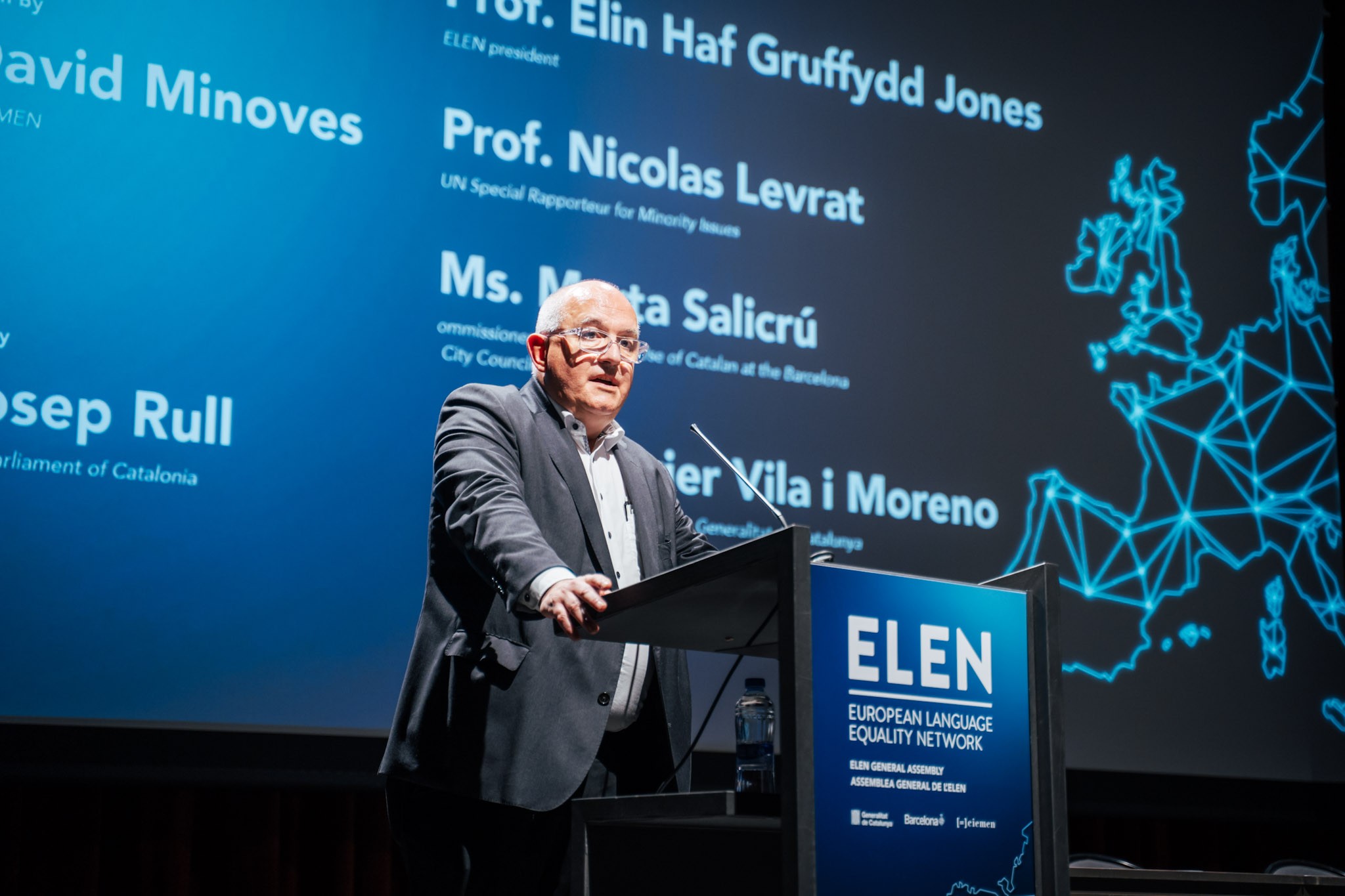
Nicolas Levrat, UN Special Rapporteur on Minority Issues said. “The EU is not living up to the expectations of its values, such as ‘respect for the rights of persons belonging to minorities’, which is a value enshrined in the EU Treaty. It is clear that this value is not reflected in EU policies and legislation, especially with regard to people speaking minority languages.”
Aleksandra Oszmianska-Pagett, Chief of the Committee of Experts of the European Charter for Regional or Minority Languages, said that the ELEN strategy gives the opportunity to look forward, and that better protection would be an investment for everyone.
The digital world, an essential space.
The Friday session focused on the effectiveness of technology and social media in maintaining and increasing the daily use of these languages. The Catalan Government Director-General for technology and audiovisual affairs, Roger Serra, discussed the latest developments in language technology that supports European minoritized languages, as well as highlighting the potential of transitioning from limited digital multilingualism to a wide multilingualism by default.
ELEN members warmly welcomed the Catalan Minister for Language Policy, F. Xavier Vila to make the Saturday plenary speech. He addressed the meetings main theme on language technology and social media for minoritised languages and the ongoing challenges that face Catalan speakers face, as well as highlighting a range of solutions being implemented by the Government.
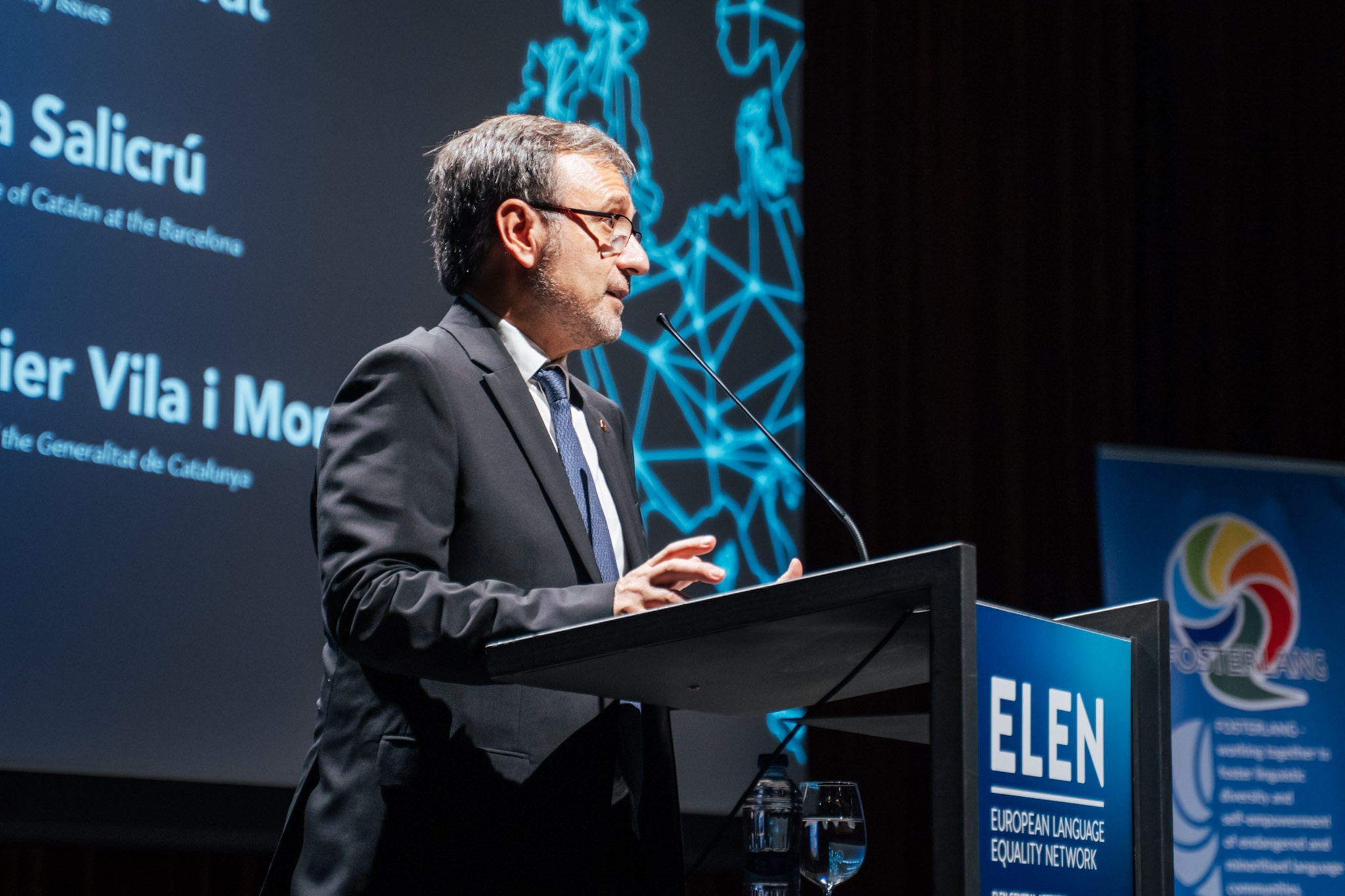
Minister Vila said “It is essential to place our languages at the centre of the digital age. Guaranteeing that the tools and platforms of the future respect and promote the linguistic rights of all people. And ensuring that everyone can live fully in their language also in the digital realm.”
Speaking to members, ELEN President Elin Haf Gruffydd Jones said, “We call on governments at all levels to work with activists to ensure greater equality in language technology, investing in infrastructure and content, and also confronting global corporations that exclude our languages from essential communication tools.”
ELEN General Assembly Official Reception.
At the official reception on Friday evening the President of the Catalan Parliament, Josep Rull, pointed out that Europe “has many challenges, and one of them is to increase the recognition and protection of minority and minoritized languages”, because he considered that they can be “a tool in the fight against the dehumanizing speeches of the extreme right” that are sweeping the continent. Rull added that they are the languages “of nations that represent a Europe of peoples with their own identity and with linguistic rights that we want respected”.
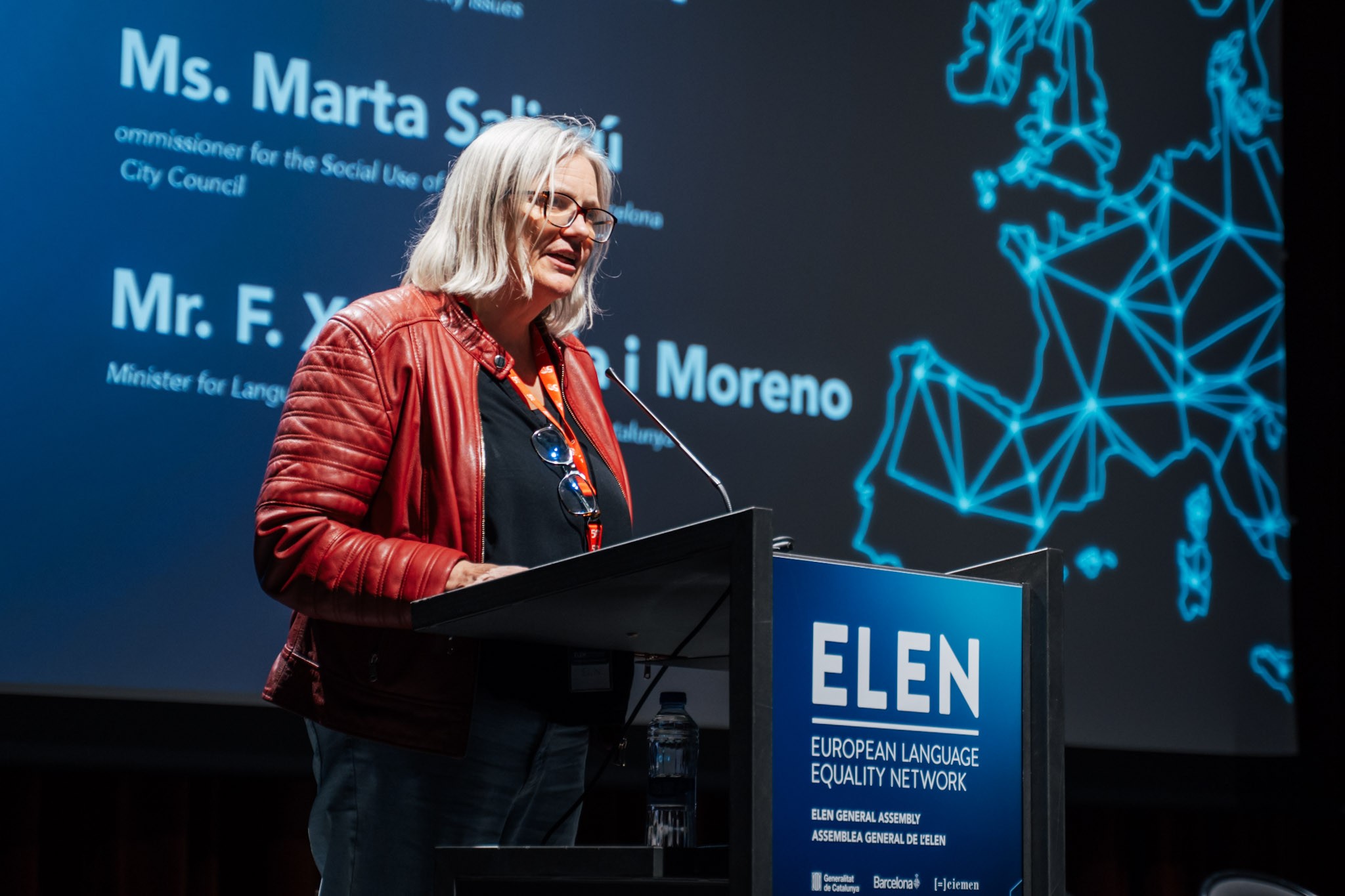
The ELEN President underlined that. “The ELEN membership is growing, not only in terms of the number of organisations that belong to it, but also in terms of the number of delegates who attend the general assembly. As analysts and activists, we know the huge challenges that our languages face, and how important it is to have strong civil society movements advocating for linguistic equality across Europe.”
CIEMEN President David Minoves said. “The recognition of the Catalan linguistic emergency and the request by the Spanish State for the recognition of the Catalan language in Europe, just like Basque and Galician, the result of pressure from entities in defense of the language, has placed Barcelona at the epicentre of the global mobilization for the recognition of linguistic rights.”
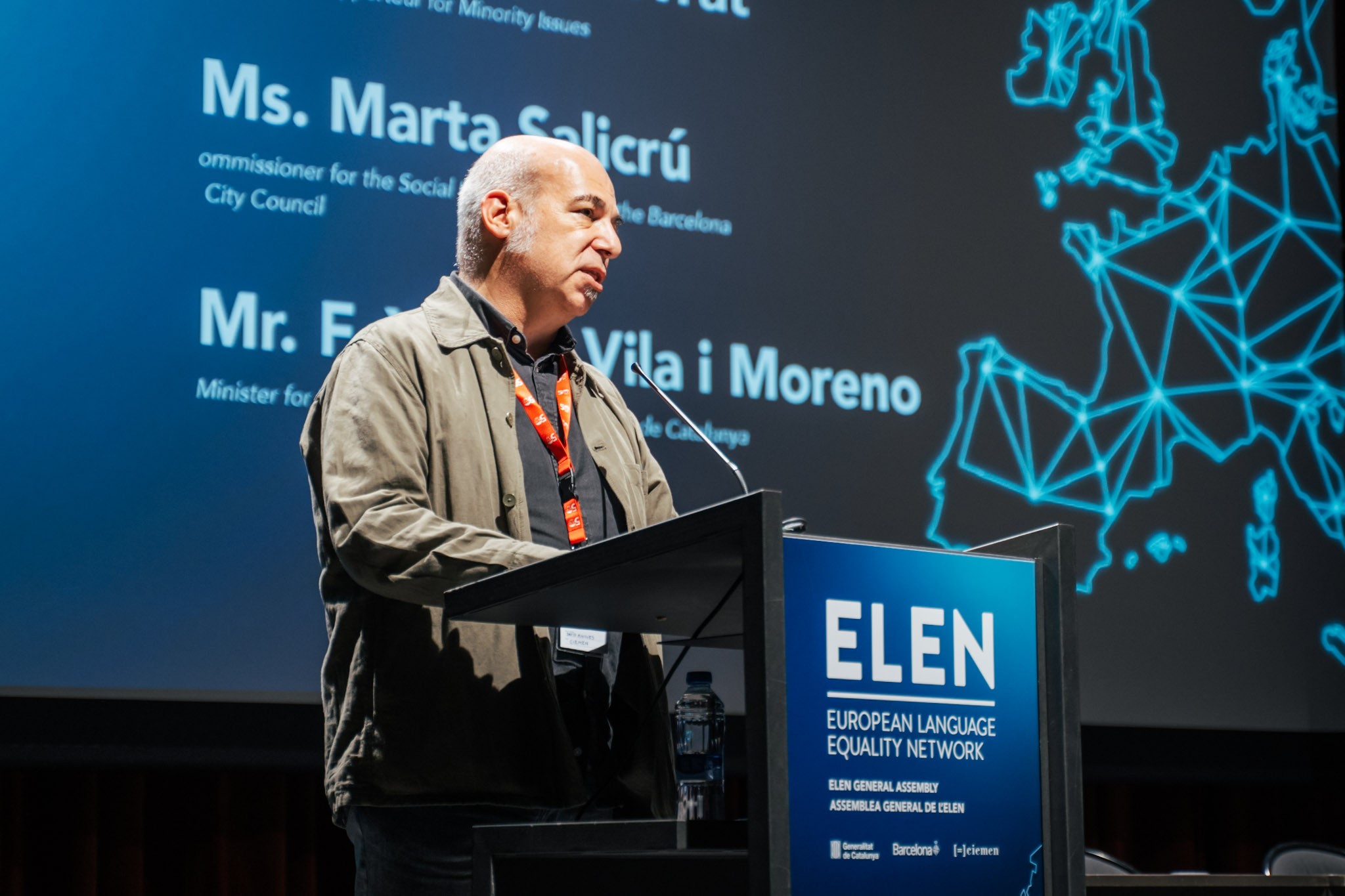
Workshops, resolutions, new members
The ELEN meeting comprised workshops on online activism; how housing issues affect language communities; developing the ELEN youth movement; updating the Universal Declaration of Linguistic Rights; as well as two packed Fosterlang workshops on language technology and social media, and immersion education.
The Saturday afternoon session saw all resolutions submitted by members passed unanimously as well as a record number of new member organisations joining. The organisations are: Mentrau Iaith (Myfanwy Jones), Kelennomp (Renan Kerbiquet), Avrupa Batı Trakya Türk Federasyonu (Halit Habip Oglou and Deniz Servantie), Diwan (Anne-Sophie Brats), Institute of Cornish Studies (Kensa Broadhurst), Committee on the Administration of Justice NI (Dara Keeve), HIGA (Albert Badosa), Cademia Siciliana (Alessio Mistretta and Alejandro Termini), Perspektiva Kaszëbskô (Artur Jabłoński and Anna Kościukiewicz-Jabłońska).
The day ended with the announcement from Conradh na Gaeilge that it will host the 2026 ELEN General Assembly in Béal Feirste (Belfast). (Eurolang 2025)
Interview with ELEN President Elin Haf Gruffydd Jones on TV3

